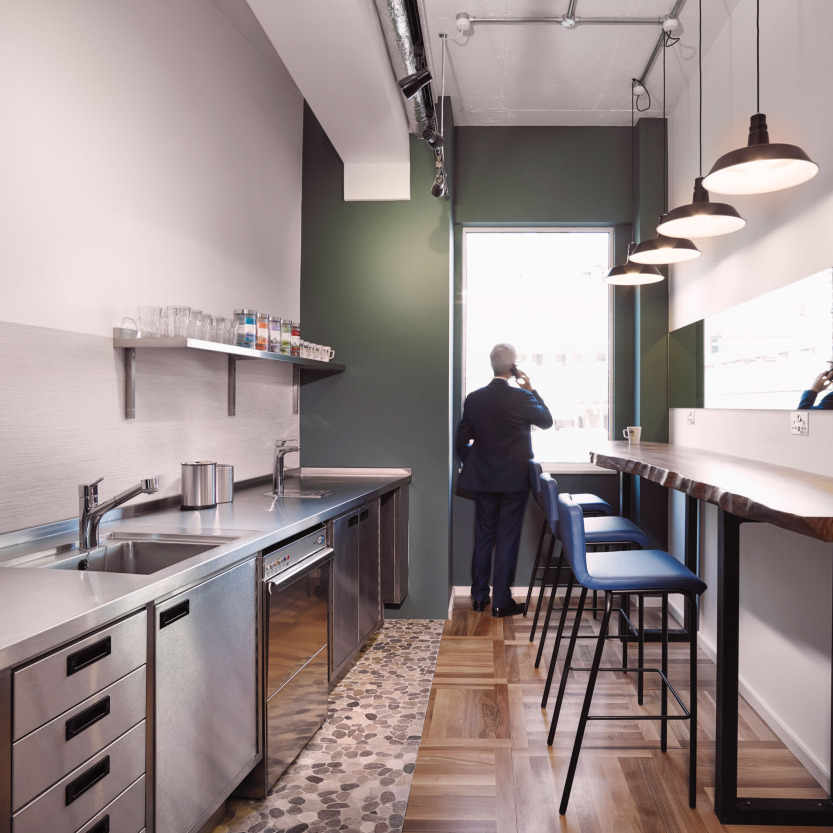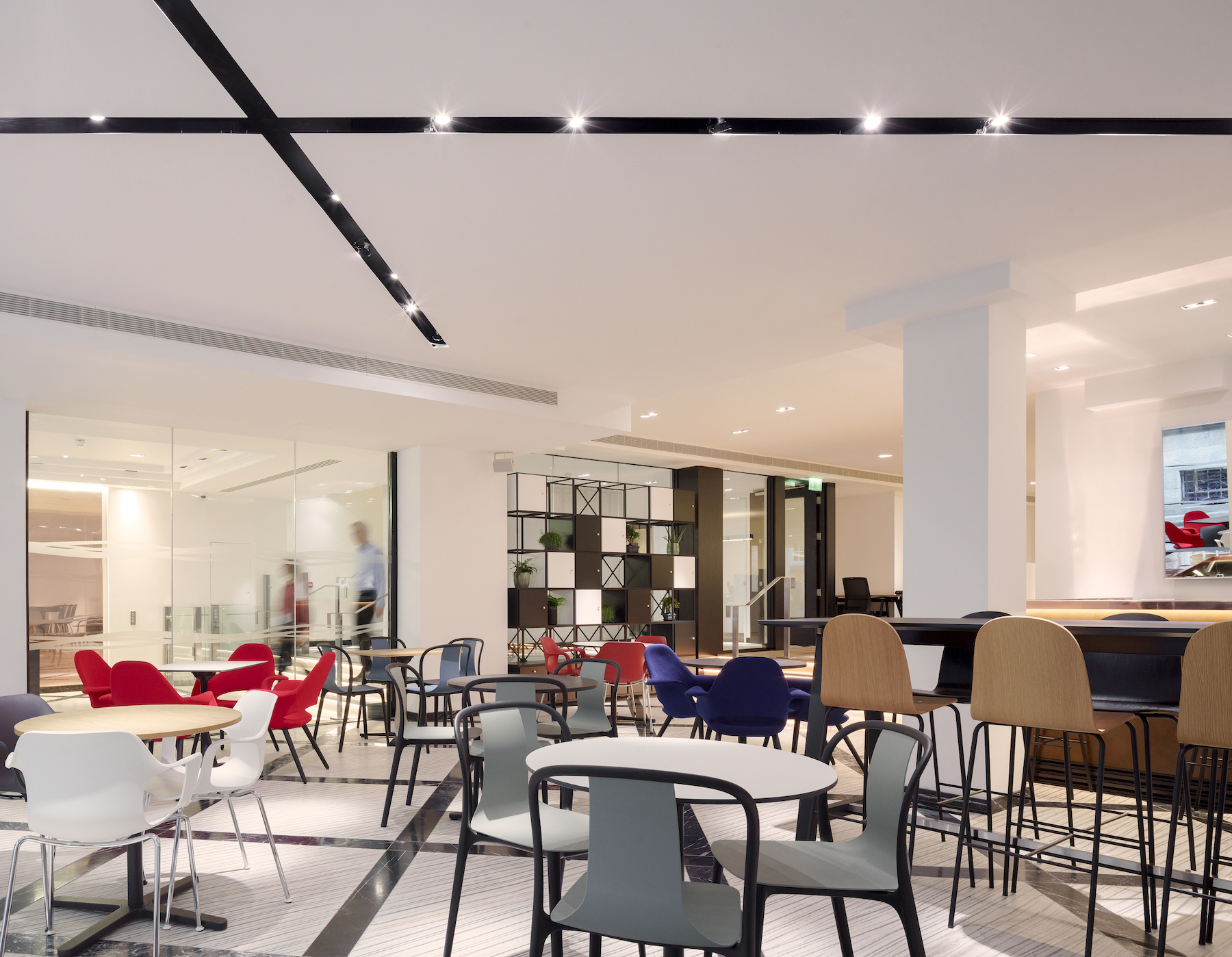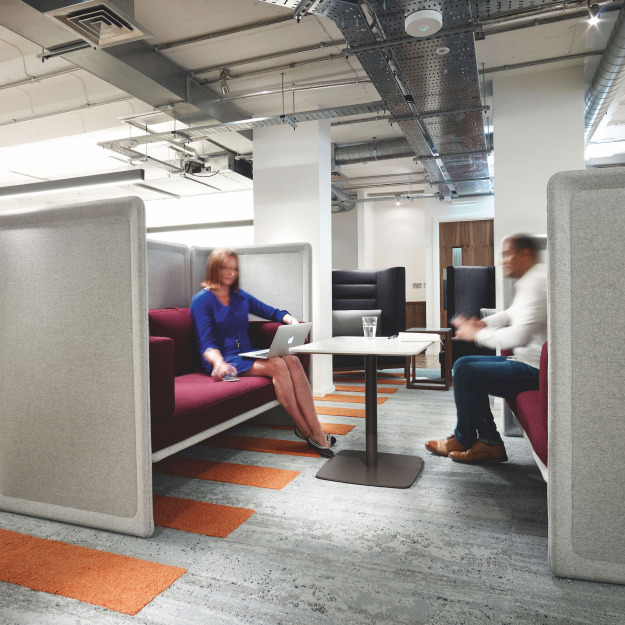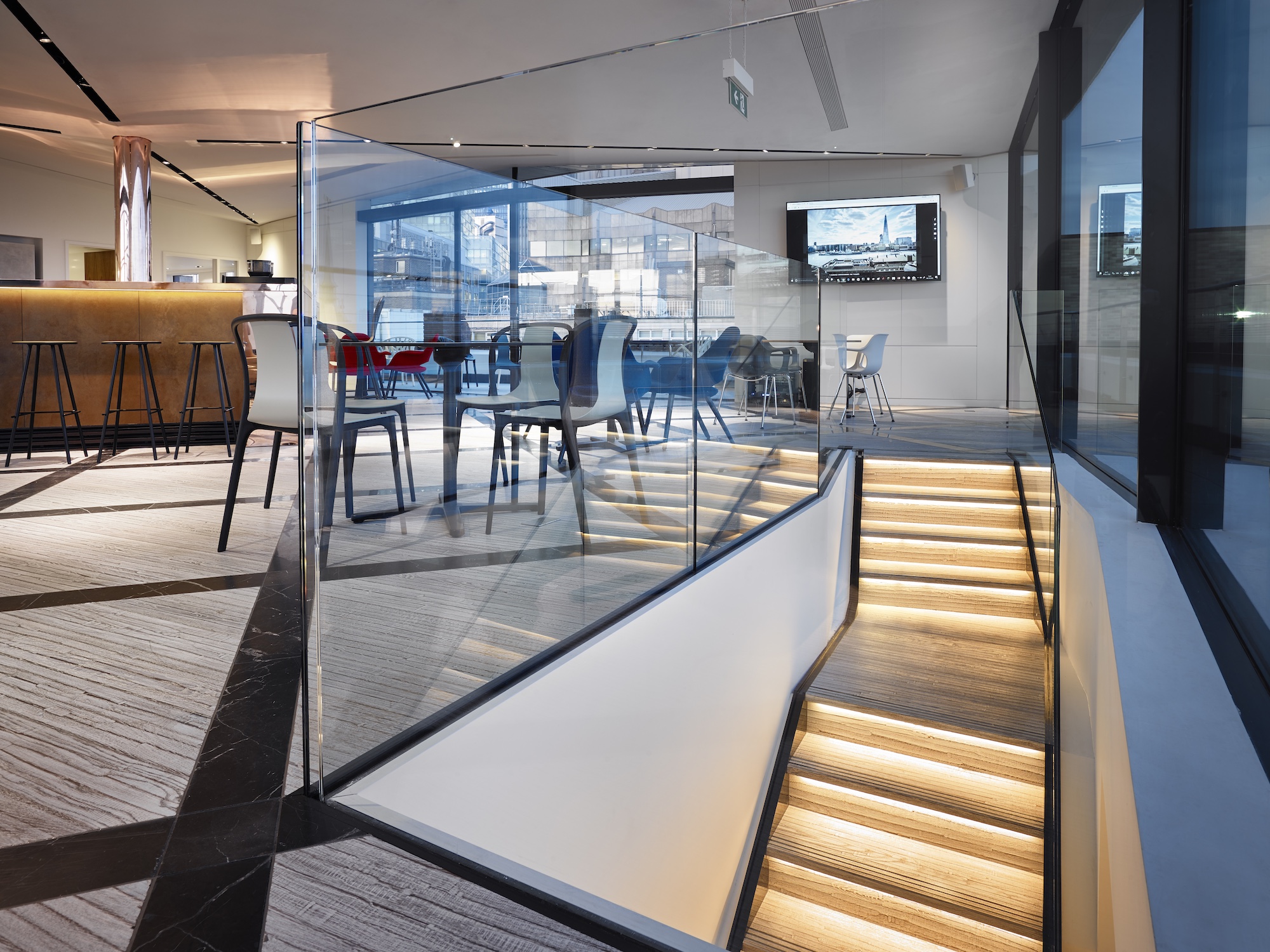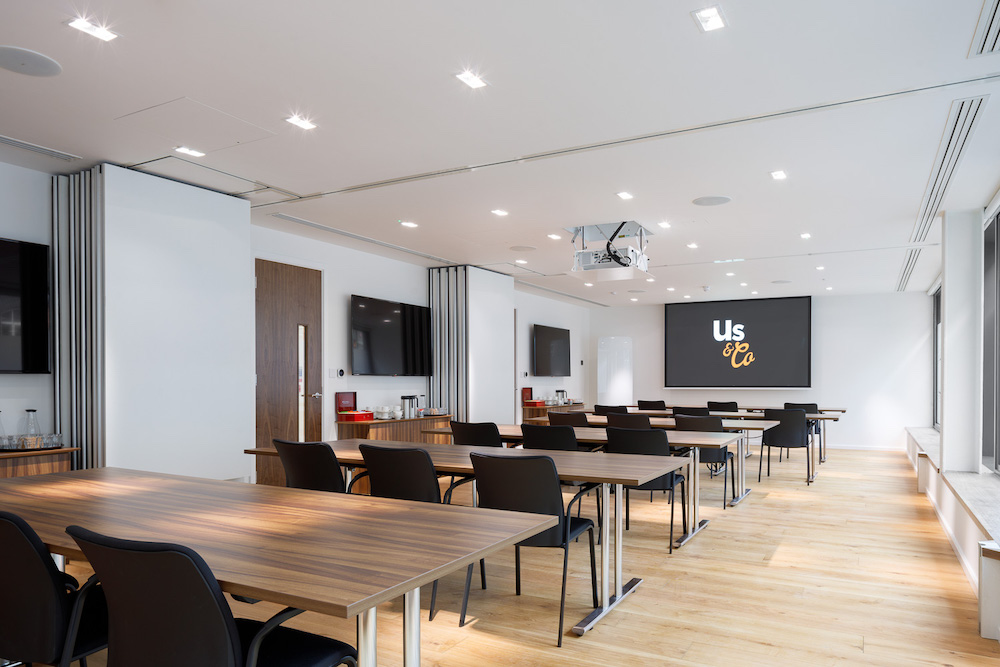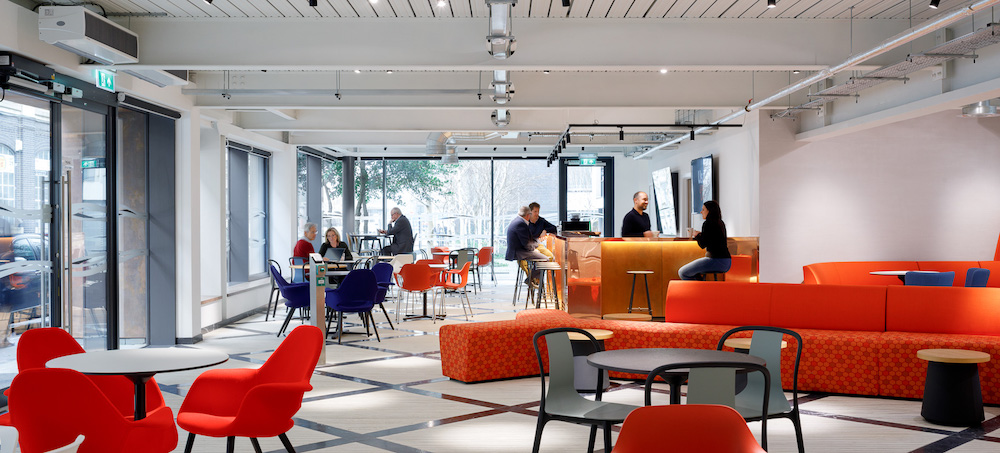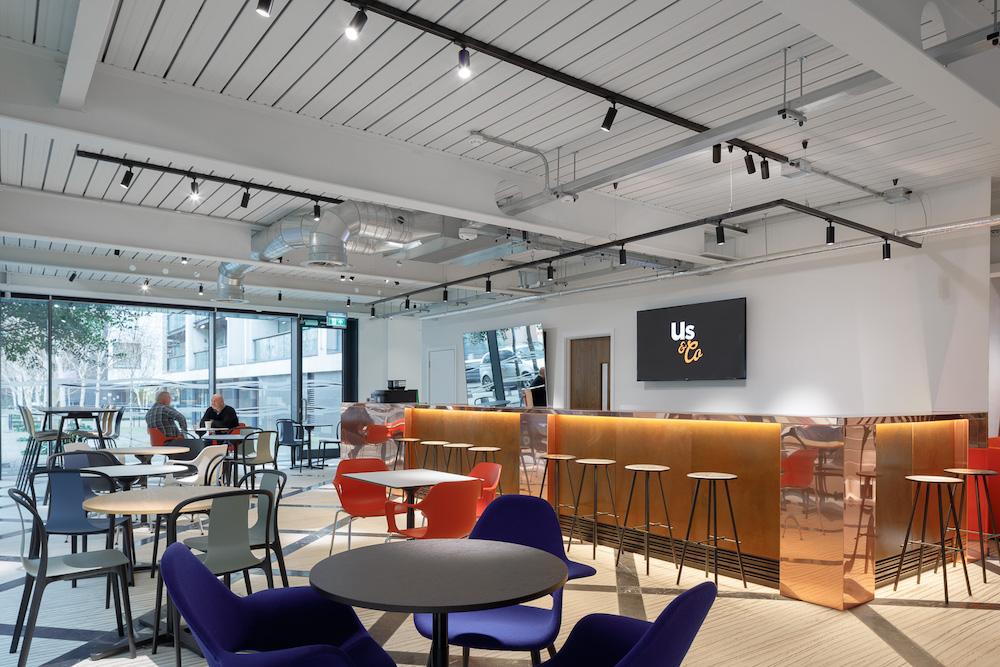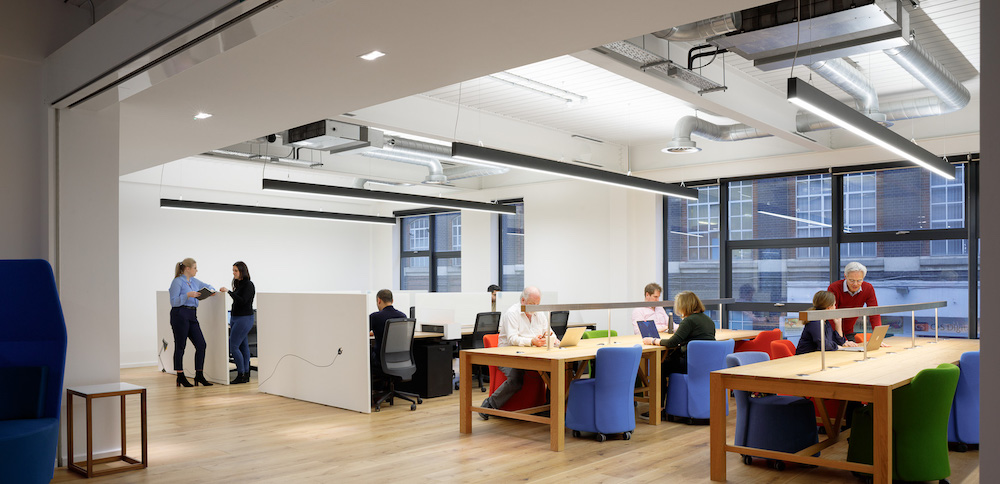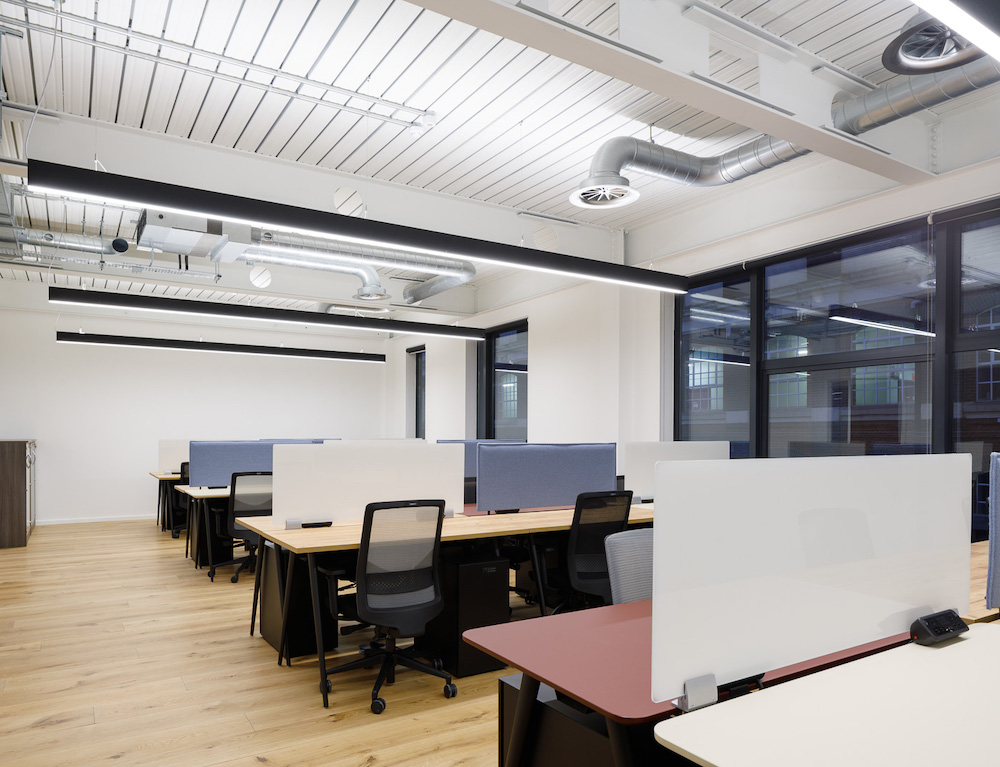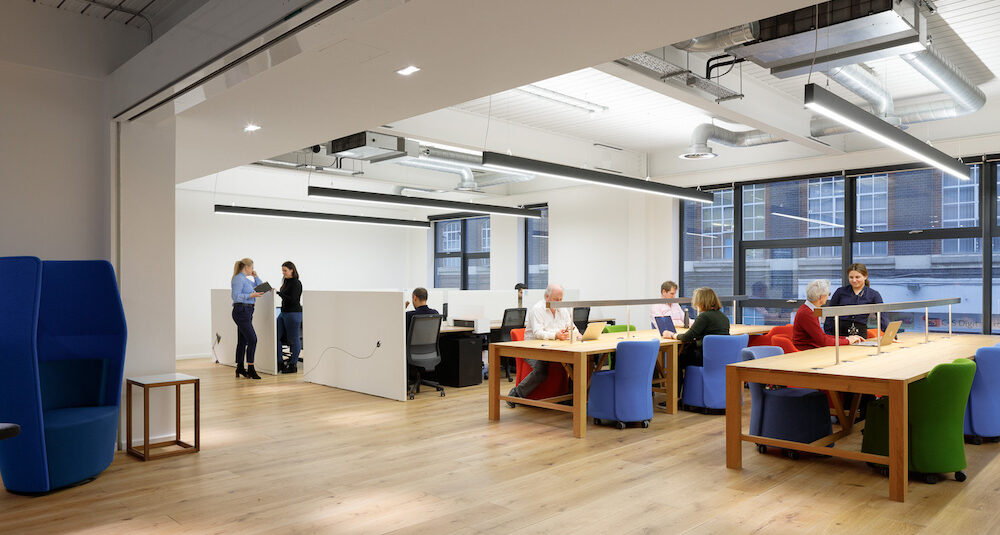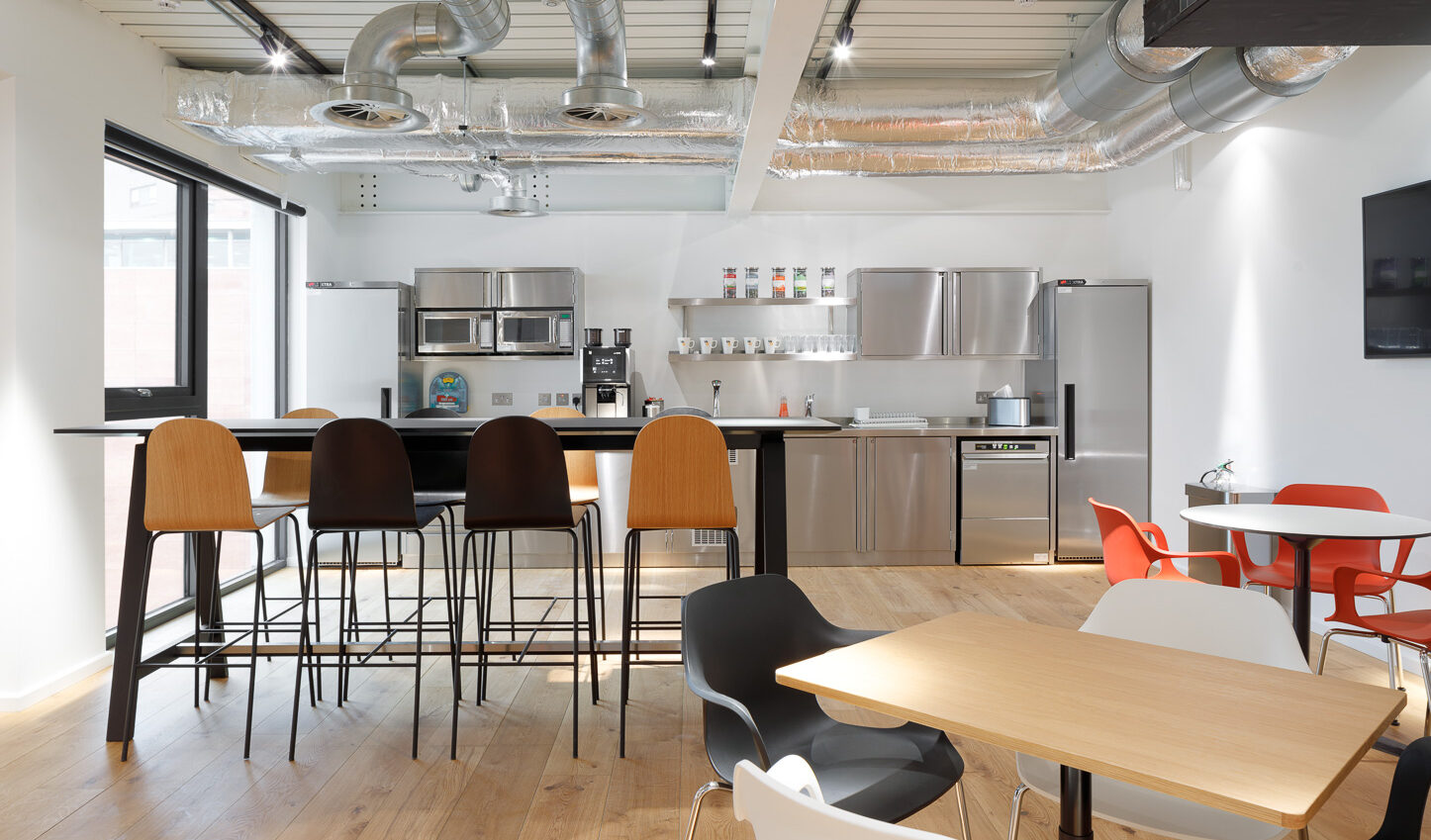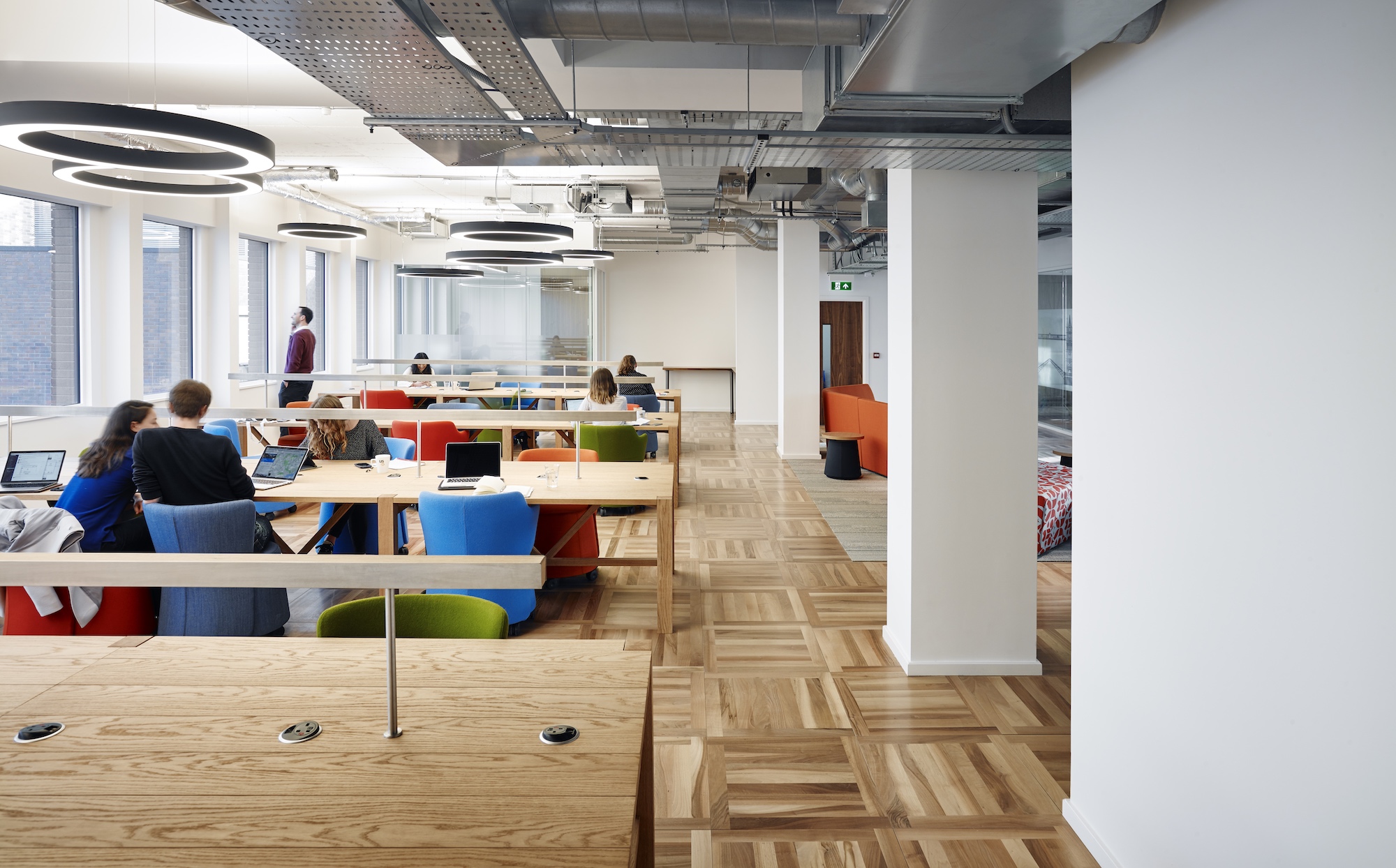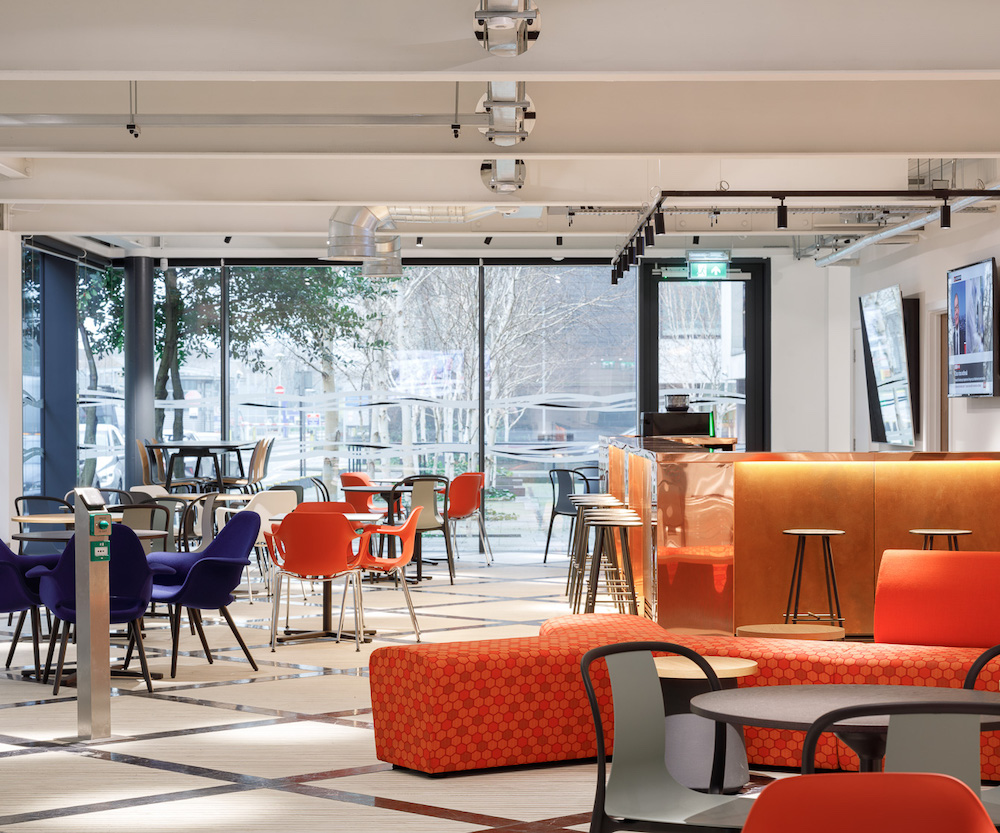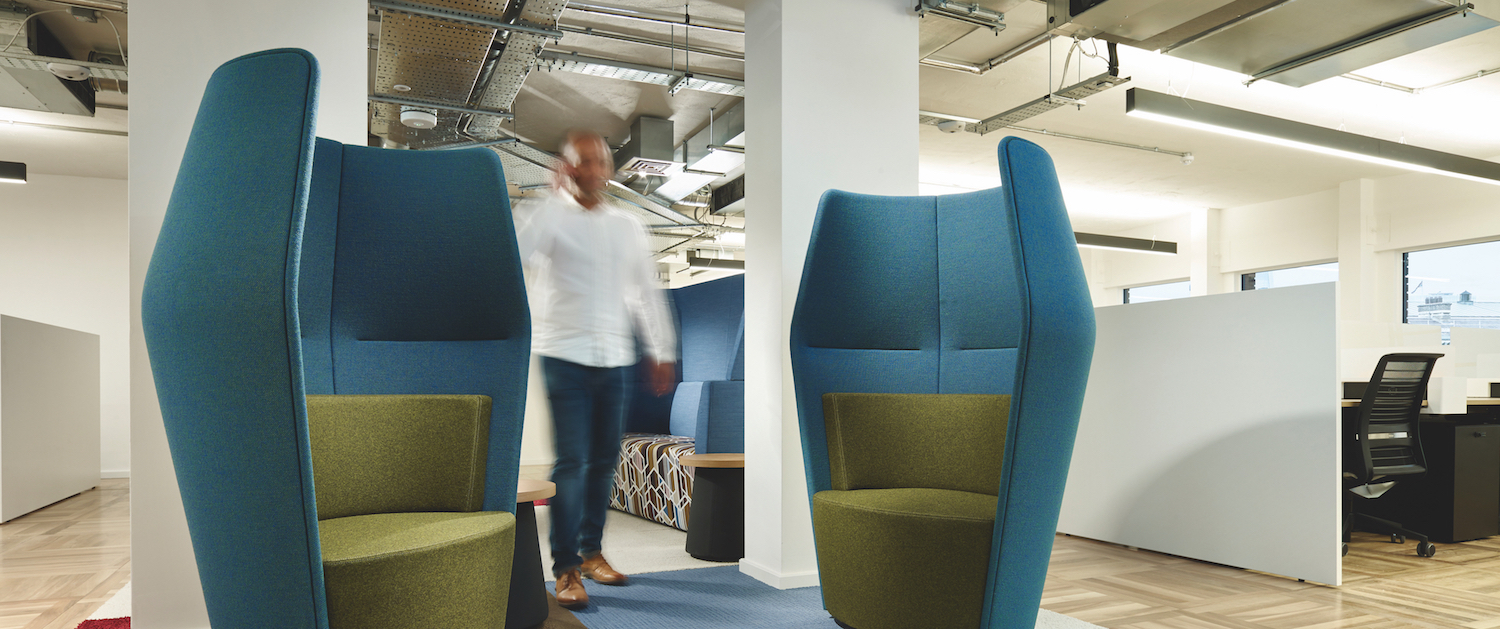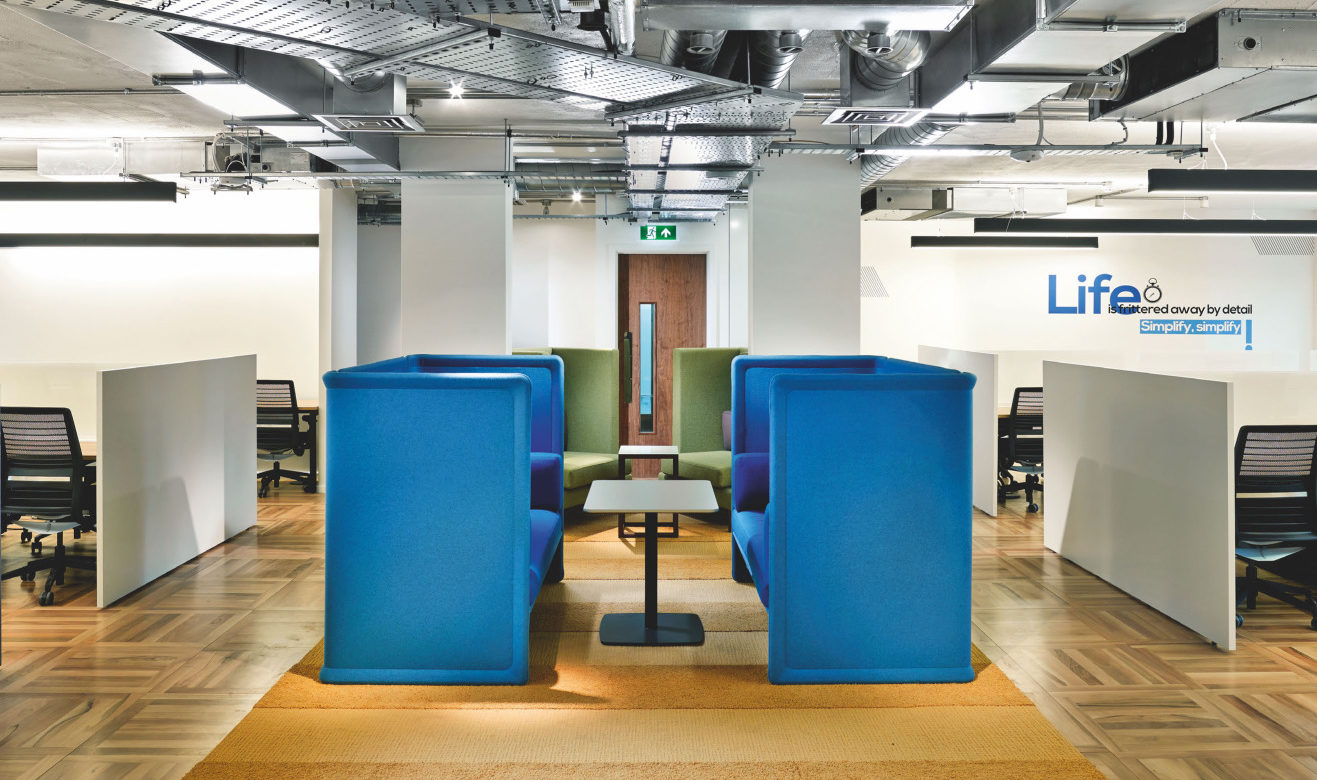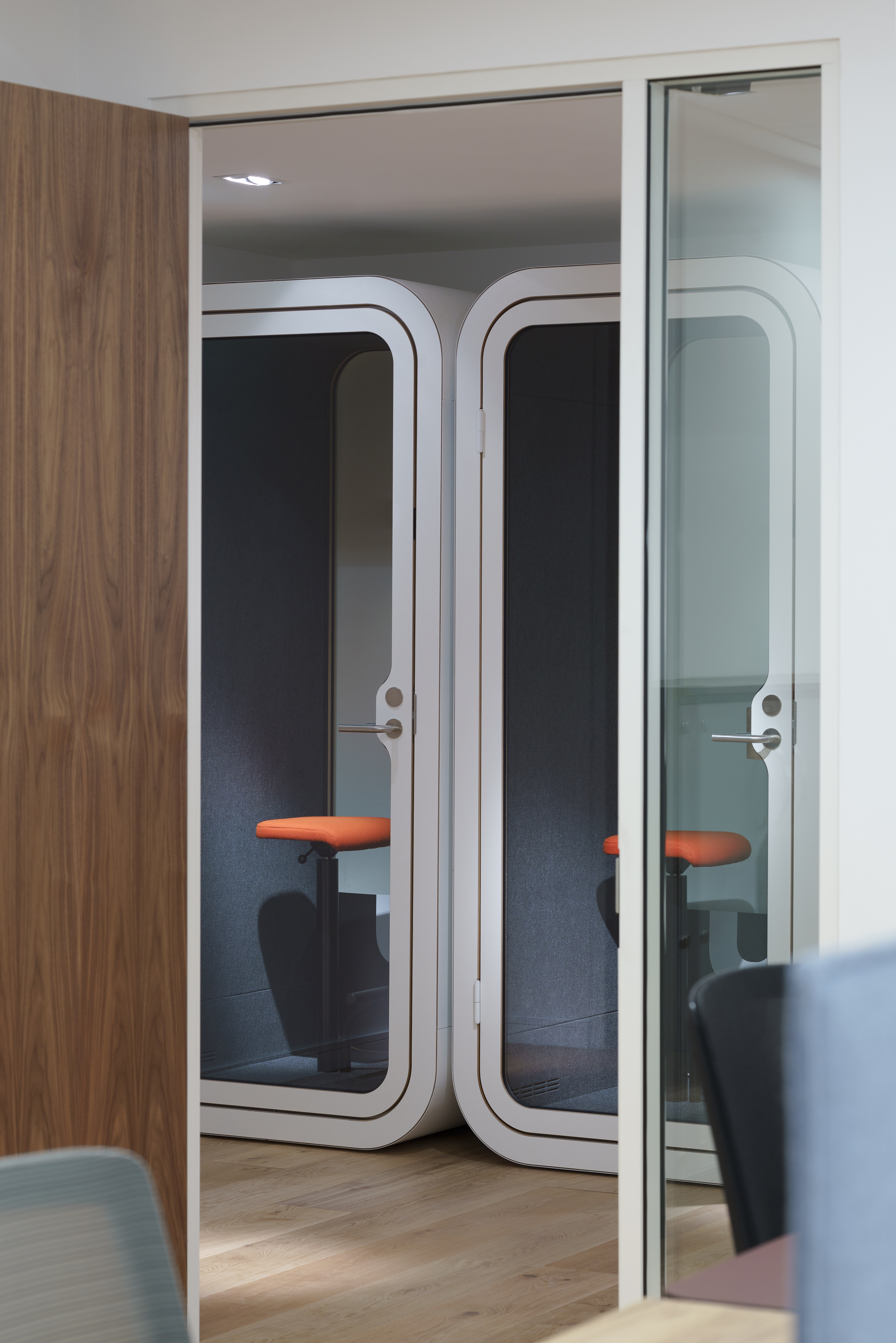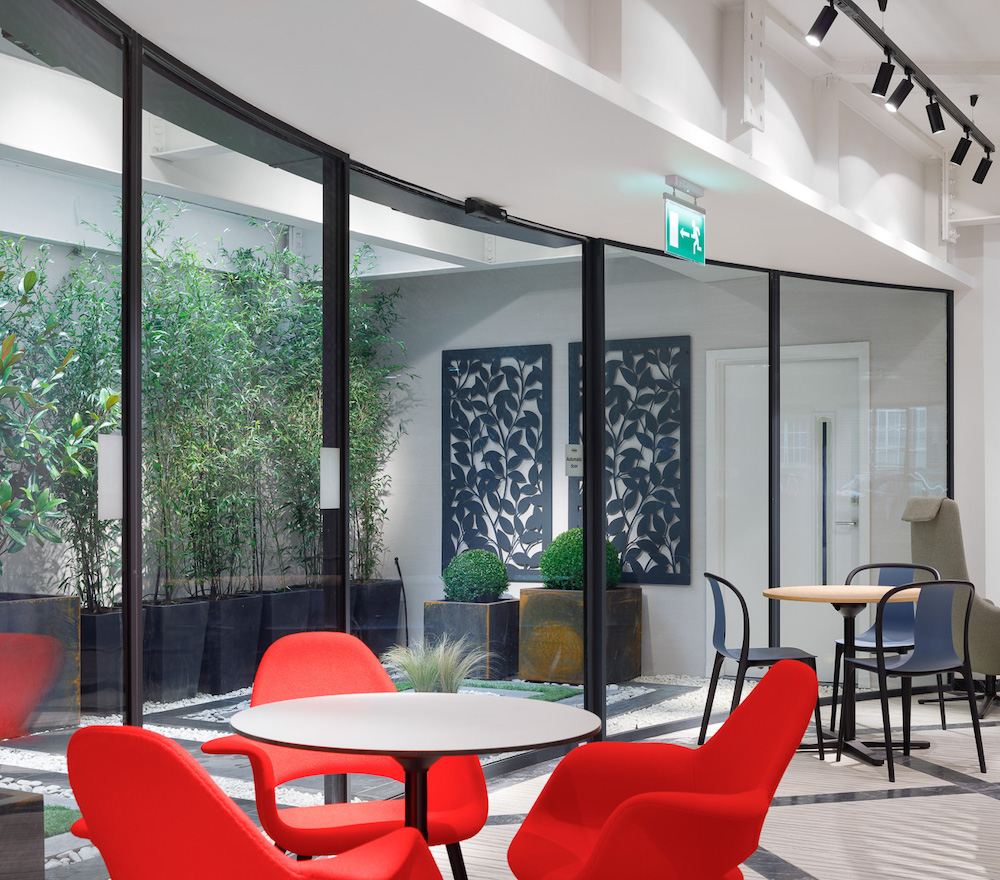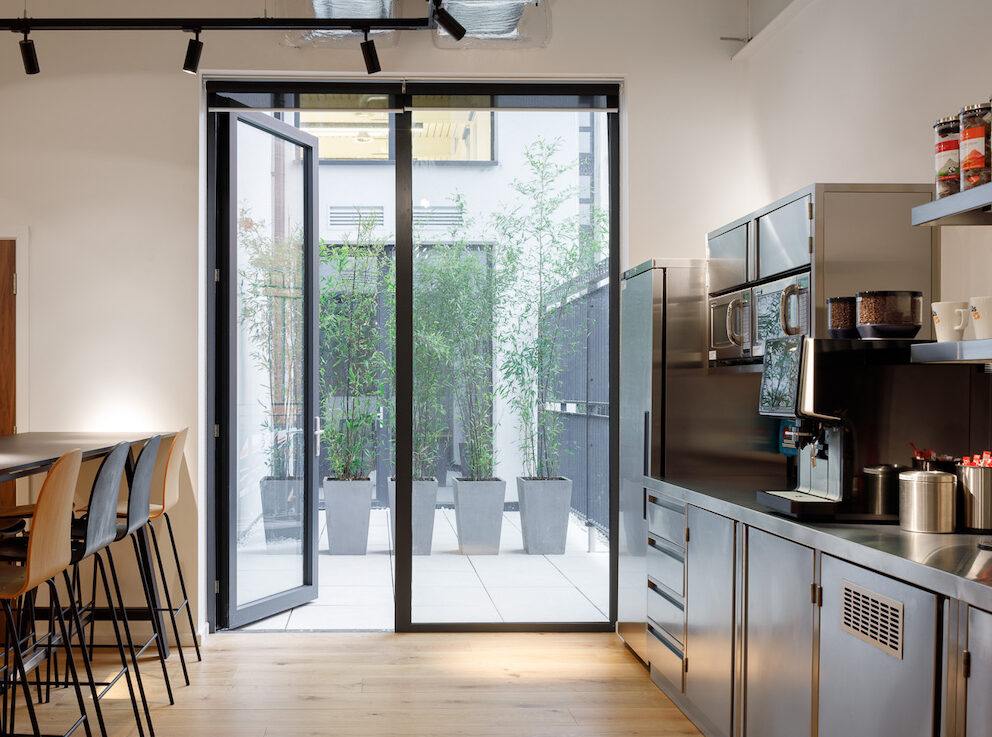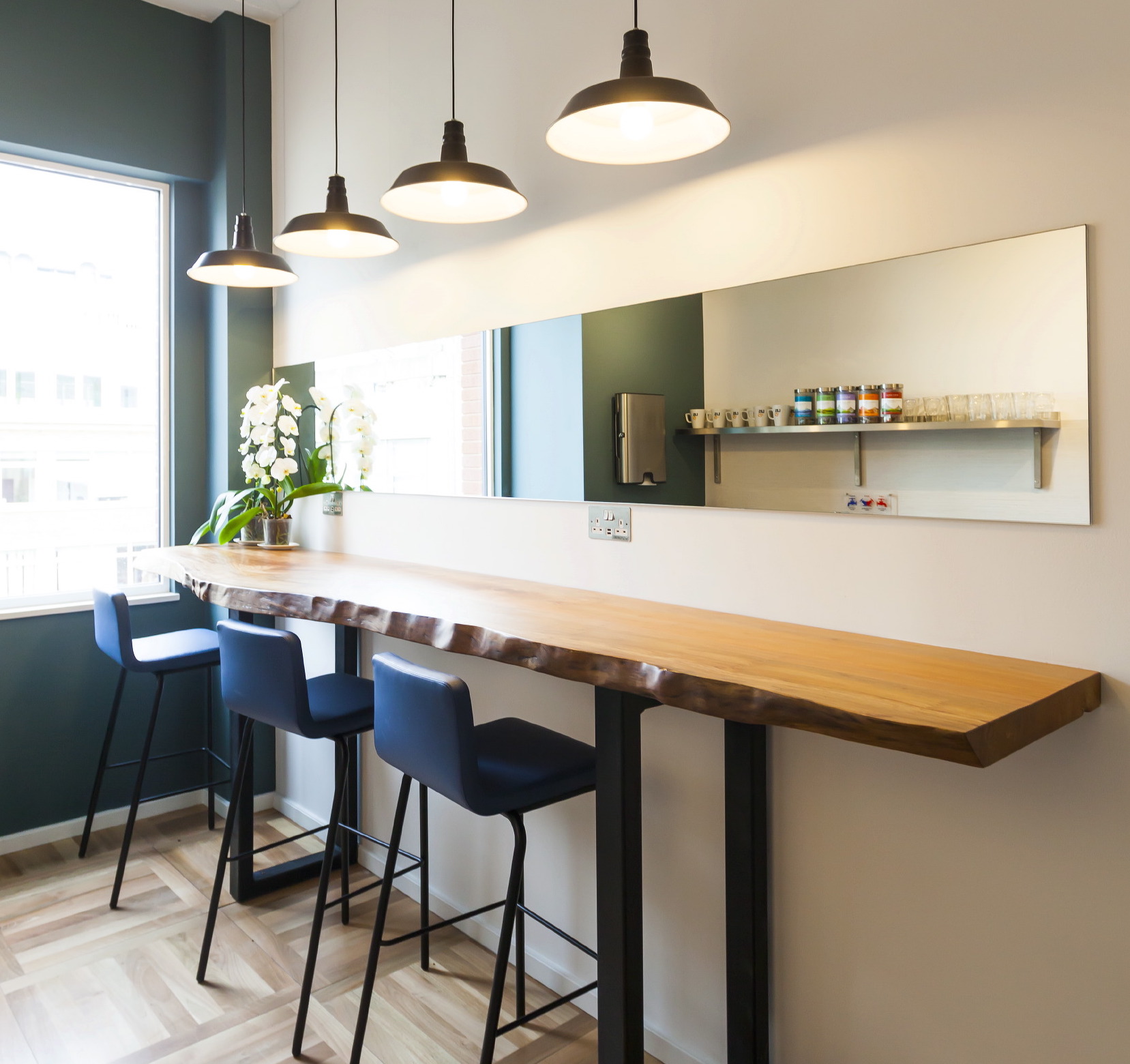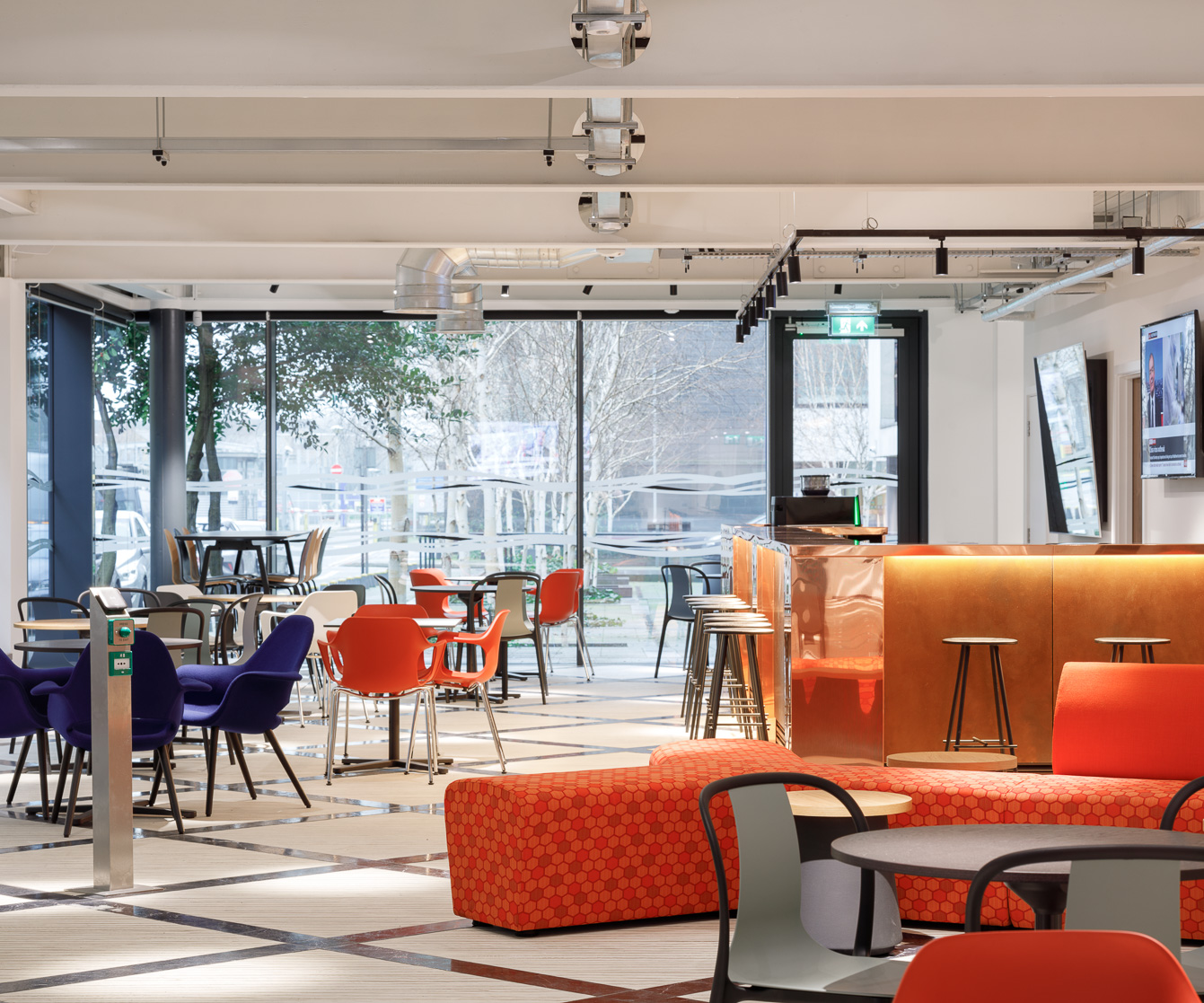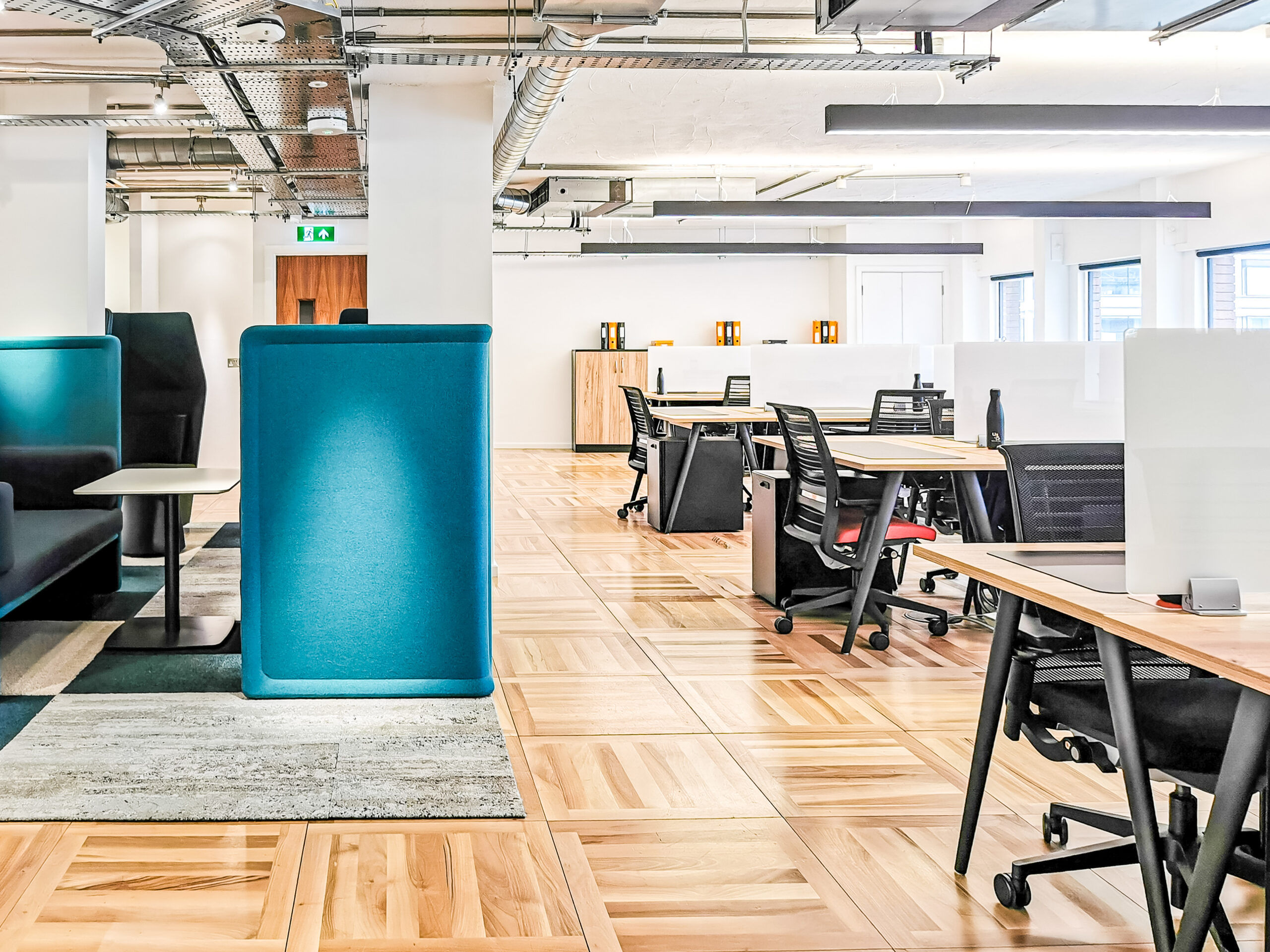
Office Space
Your own fully furnished, serviced office,. Whether you need 4 desks, 14, 20 or more, we can accommodate you, with the flexibility to scale up in the future. You can also take a whole floor with 50 desks, a private kitchen and meeting room. Our offices have great natural light and high speed secure internet, fresh ground coffee, still and sparkling water are all included. Dedicated bandwidth can be provided on request.
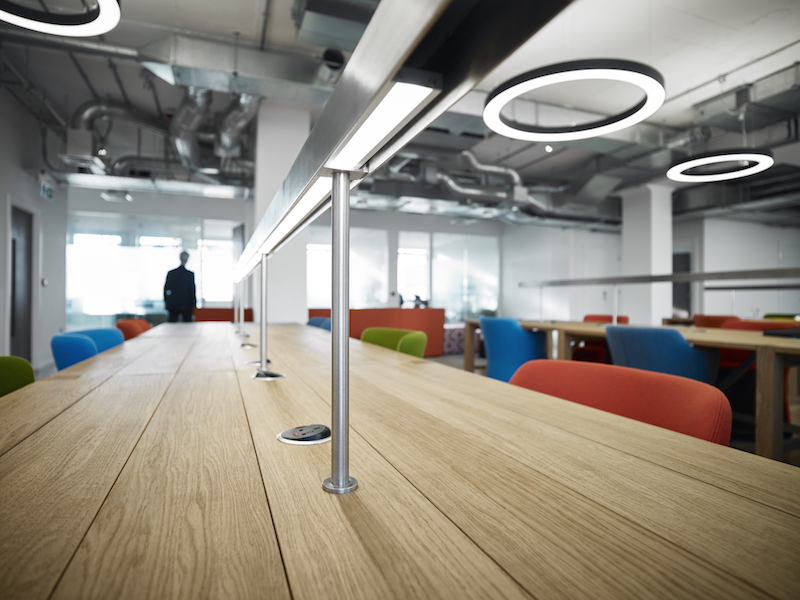
Hot Desks & Day Passes
Find a seat, plug in your laptop and get working. Monday to Friday, access to a shared workspace in a dynamic environment. Available as a Monthly Membership or Day Pass.
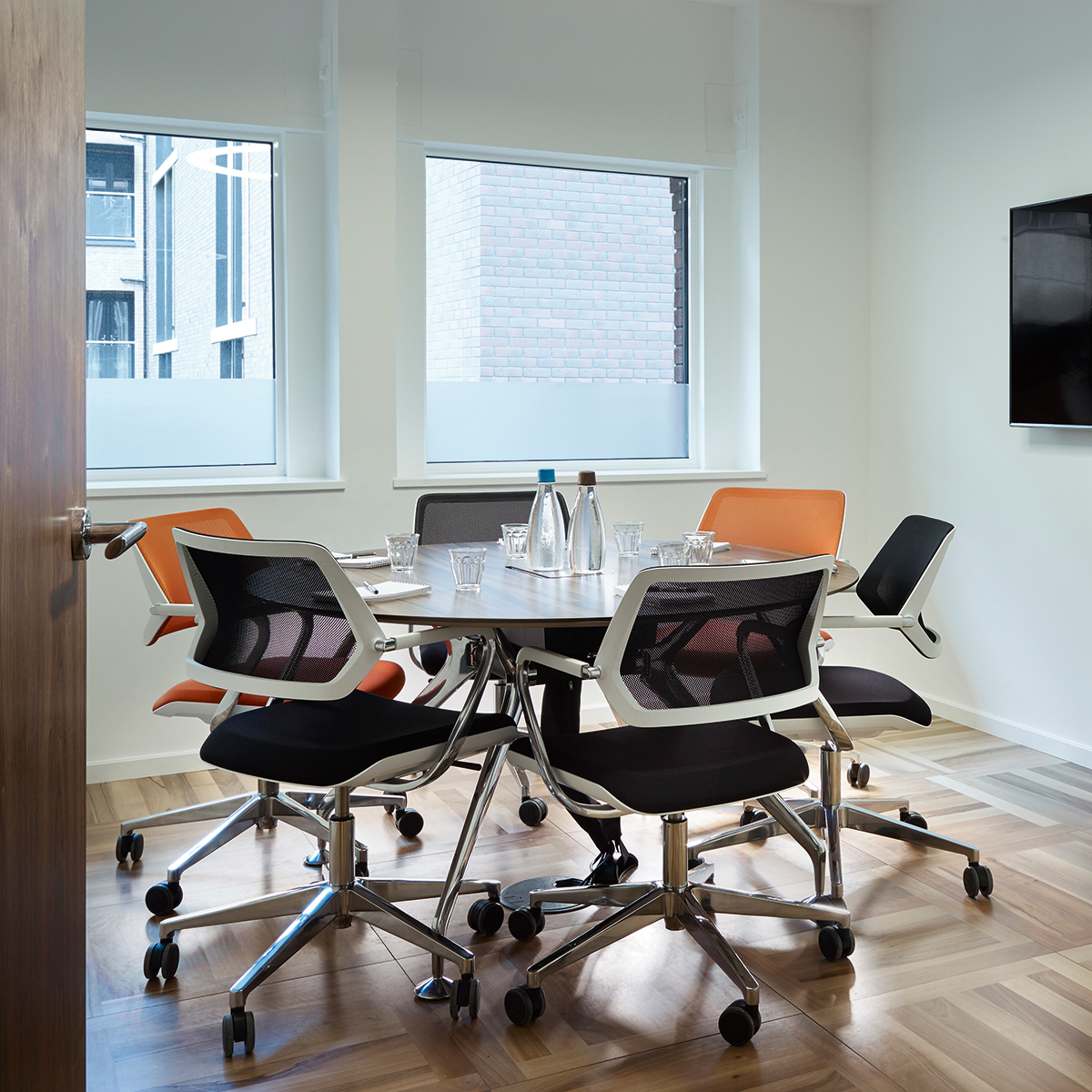
Meeting Rooms
Whether you’re an existing Us&Co member or a company in need of impressive facilities with state-of-the-art technology. Our meeting rooms of varying sizes all have fantastic natural daylight, soundproofing, comfortable seating and presentation screens. Catering is also available on request. our range of meeting rooms is easy to book directly through our website.
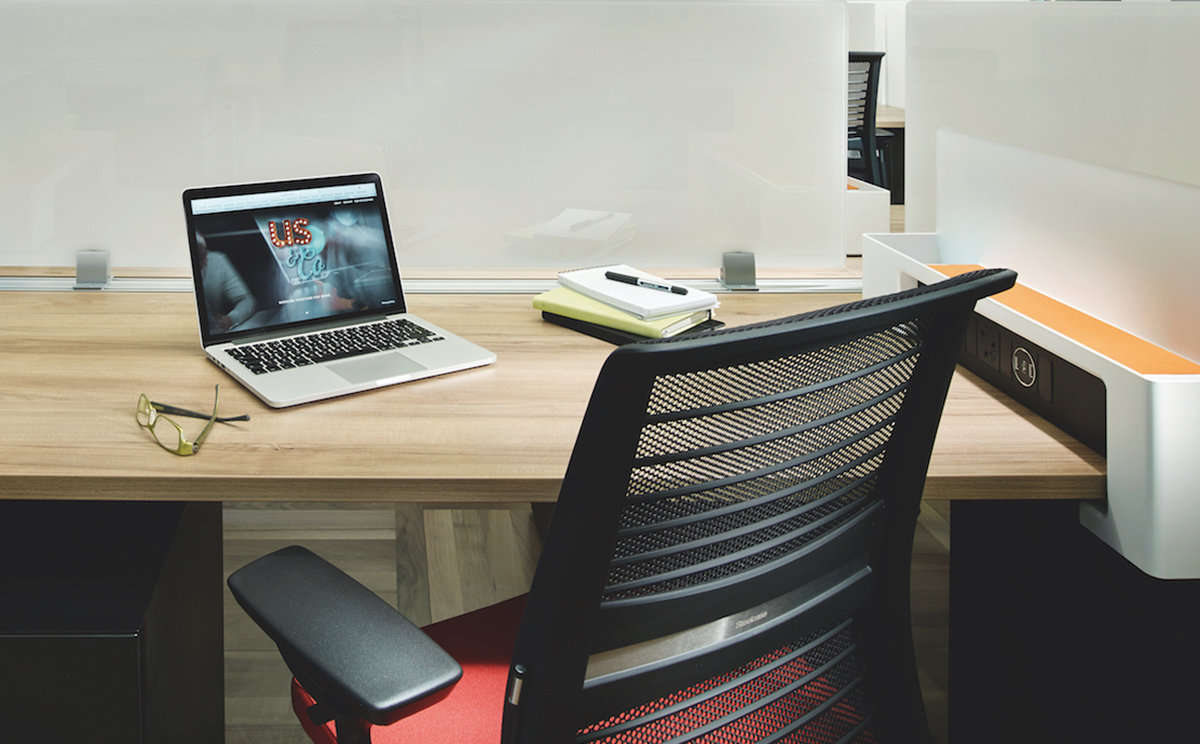
Fixed Desk
Rent a desk – or desks – on our shared co-working floor. Full of natural light, with 24/7 access, a lockable pedestal, ergonomic chair, launch pad with power sockets and USB connectors for easy access. Fixed desks are great for smaller companies, start-ups and individuals.
Amenities
Us&Co takes co-working and private office space to the next level. Beautifully designed interiors and amazing breakout areas with stunning views over the City – a unique experience for companies, freelancers and start-ups. Our members have access to the following facilities and amenities:
- Free super fast Wifi
- Freshly ground coffee
- Onsite support team
- Outdoor spaces and terraces
- Bike storage
- Breakout spaces
- High Tech Meeting Rooms
- Showers
- Still & sparkling water
- Central locations
- Complimentary phone booths
